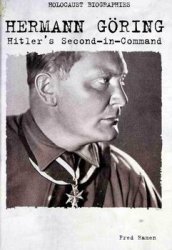1901 Jewish National Fund is founded to buy land in Ottoman-ruled Palestine for
Zionists.
1914 (Aug.) World War I begins.
1916 Great Britain and France urge an independent Arab state, or confederation of Arab states, with capital in Palestine.
1917 Great Britain's Balfour Declaration endorses creation of Jewish state in Palestine.
1918 World War I ends with approximately 60,000 Jews living in Palestine.
1920 League of Nations grants British mandate to govern Palestine.
1936-1939 Arab violence against growing numbers of Jewish immigrants rises.
1939 Britain attempts to restrict Zionist activity by limiting legal immigration to
15,000 Jews per year, creating flood of illegal immigration.
1947 Britain rejects Palestine mandate and requests help from United Nations, who vote to partition country; civil war erupts as Jews accept partition and Arabs reject it.
1948 (May 14) After British forces leave Palestine, Jews declare independence of state of Israel.
1948 (May 15) War begins between newly independent Israel and neighboring Arab states.
1949 Jordan gains control of Jerusalem and restricts visitation to holy sites.
1956 Sinai Campaign begins with Israel occupying Sinai and Gaza.
1957 Israel withdraws and turns over Gaza and Straits of Tiran to United Nations.
Tacked it in international waters, resulting in over two hundred U. S. casualties. Despite the Liberty incident, a U. S. veto in the Security Council of the United Nations was all that prevented that body from condemning Israel for making aggressive war and sending troops to intervene. The war ended in another uneasy armistice between the Israelis and their Arab neighbors.
This so-called Six-Day War only heightened tensions in the Middle East and provoked the Palestinians to increase guerrilla attacks on Israel and Israeli citizens. One of the most deadly of these attacks came during the 1972 Olympic Games, when eleven Israeli athletes died in a terrorist raid in Munich, West Germany.
In 1973 the Arab states launched a surprise attack of their own against Israel. In the first airstrikes of the Yom Kippur War, Egyptian, Syrian, and Iraqi aircraft destroyed many of the airplanes
1964 Palestine nationalist groups merge to form Palestine Liberation Organization
(PLO).
1967 (June) Israel defeats Egypt, Syria, and Jordan in Six-Day War.
1973 (Oct.) Yom Kippur War begins when Egypt, Iraq, and Syria launch attacks
On Jewish holy day.
1974-1977 Agreement brokered by United Nations reinstates 1967 Palestinian borders and reopens Suez canal.
1978 Egypt and Israel sign Camp David peace accords and Israel withdraws from Sinai.
1982 Israel invades Lebanon to destroy PLO bases along Israel's northern border.
1987 Intifada, a period of protest in West Bank and Gaza, begins.
1993 Israel and PLO agree on framework for autonomy in West Bank and Gaza.
1994 Israeli troops pull out of Jericho and Gaza, with other West Bank towns to follow, handing over control to Palestinian police.
1996 (Jan.) Yasir Arafat is elected president of Palestinian Council.
1998 (July 7) U. N. General Assembly votes, 124-4, to grant observer status to PLO—
A motion Palestinians hail as precursor to full U. N. membership.
1998 (Nov. 20) Israeli occupation forces begin withdrawal from West Bank territory
Being handed over to Palestinian National Authority.
2000 (Sept.) U. S. president Bill Clinton moderates a summit meeting between
Ehud Barak and Yasser Arafat at Camp David in Pennsylvania; Arafat rejects Barak's offer of Palestinian control over most of the lands occupied by Israel in the 1967 war.
(continued)
And tanks which the United States had supplied to the Israelis. U. S. president Richard Nixon quickly resupplied the Israeli army and air force with weapons. The war ended in another armistice but had serious repercussions for the Israelis.
Officials of the Middle Eastern nations, angered by what they considered favoritism toward Israel on the part of the U. S. government, declared an oil embargo. The embargo resulted in severe gasoline shortages in the United States, with long lines of cars waiting for gas at filling stations. Many Americans blamed Israel for the shortages, and some of the former goodwill felt by U. S. citizens toward Israel dissipated.
At the same time, more U. S. citizens were learning about the plight of the Palestinians and beginning to express support for their cause. Much of the sympathy felt for the Palestinians in the
Palestine Time Line (continued)
2000 (Sept. 28) Israeli opposition leader Ariel Sharon visits the Temple Mount. Palestinians react with protests and riots, as a new cycle of violence begins.
2001 (Feb. 6) Ariel Sharon is elected prime minister of Israel.
2001 (Mar.) Palestinians begin a series of suicide bombings against Israeli targets.
2001 (Oct. 17) Israeli tourism minister Rehavam Ze'evi is killed by Palestinians retaliating for the death of a Palestinian leader.
2002 (Aug. 17) Israel offers to withdraw from Bethlehem and parts of Gaza if Palestinian security forces demonstrate an ability to control terrorists from those areas.
2002 (Aug. 19) Palestinian terrorist leader Abu Nidal is reported dead.
2002 (Sept. 10) Yasser Arafat's Fatah Movement issues a call for an end to terrorist
Attacks on Israeli civilians.
2002 (Sept. 17) Representatives of the United States, United Nations, European Union,
And Russia offer a three-phase plan aimed at establishing peace between Israel and the Palestinians and at creating a Palestinian state by 2005.
2002 (Sept. 19) Bomb attack on a Tel Aviv bus kills six Israelis; the government responds by laying siege to Yasser Arafat's office compound in an effort to isolate Arafat and arrest four senior Palestinian officials suspected of involvement in terrorist activities.
2003 (Feb. 14) Under international pressure, Yassir Arafat announces he will appoint a prime minister to serve under his Palestinian Authority presidency.




 World History
World History









